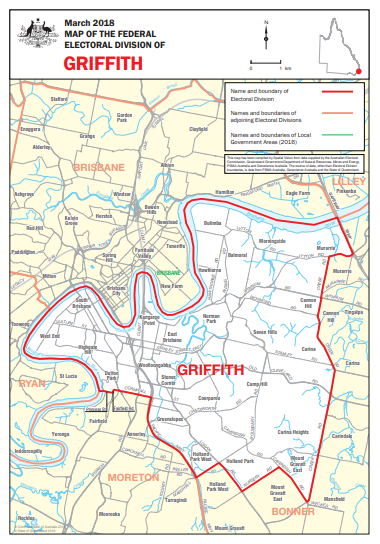|
|
|
|
| Adam Carr's Election Archive
|
Australian federal election, 2022
Division of Griffith, Queensland
Named for: Rt Hon Sir Samuel Griffith (1845-1920), Qld MP
1872-93, Premier 1883-88, 1890-93, Chief Justice of Queensland.
Principal author of the Australian Constitution, first Chief Justice
of the High Court.
Southside Brisbane: Bulimba, Coorparoo, Greenslopes, Morningside, West End
State seats: Parts of
Bulimba,
Chatsworth,
Greenslopes,
Mansfield and
South Brisbane
Local government areas: Parts of Brisbane
Borders with:
Griffith,
Lilley and
Ryan
Enrolment at 2019 election: 111,917
Enrolment at 2022 election: 121,277 (+08.4)
1999 republic referendum: No 52.2
2018 same-sex marriage survey: Yes 76.6
Sitting member: Terri Butler (Labor):
Elected 2014 by-election, 2016, 2019
2007 Labor majority over Liberal: 12.3%
2010 Labor majority over Liberal: 8.5%
2013 Labor majority over Liberal: 3.0%
2014 by-election Labor majority over Liberal: 1.8%
2016 Labor majority over Liberal 1.6%
2019 Labor majority over Liberal 2.9%
Liberal two-party vote 1983-2019
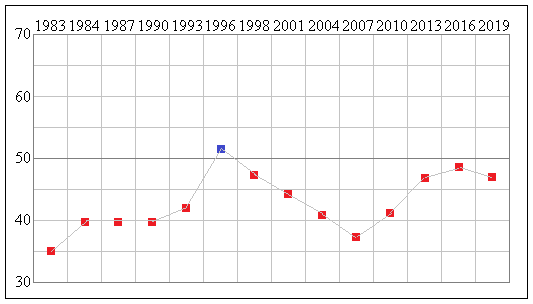
Status: Very marginal Labor
Best Labor booths, two-party vote: West End (71.5), Woolloongabba South (67.5),
Hill End (67.1), Dutton Park (66.7), Buranda West (66.3)
Best Liberal booths, two-party vote: Coorparoo South (62.0), Holland Park East (61.0),
Balmoral (59.3), Bulimba (54.7), Coorparoo PPVC (54.4)
2019 results
Statistics and history
Candidates in ballot-paper order:
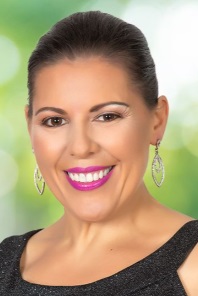 |
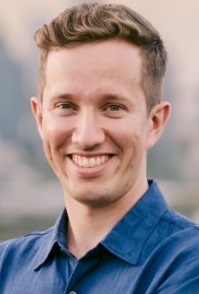 |
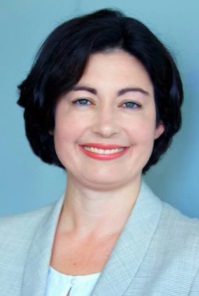 |
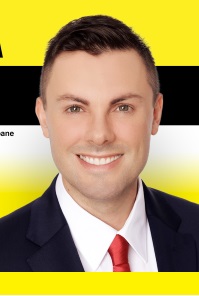 |
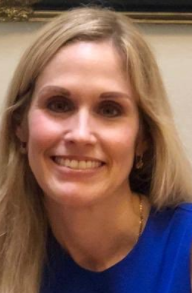 |
1. Shari Ware
Pauline Hanson's One Nation |
2. Max Chandler-Mather
Australian Greens |
3. Terri Butler
Australian Labor Party |
4. Robert McMullan
United Australia Party |
5. Olivia Roberts
Liberal Party |
Candidate websites:
Terri Butler
Max Chandler-Mather
Robert McMullan
Olivia Roberts
Division of Griffith
Griffith was created in 1934, when the old seat of
http://psephos.adam-carr.net/countries/a/australia/history/oxley1/oxl1.shtml">Oxley, which had taken in the inner southern suburbs of Brisbane since
Federation, was renamed.* Until the 1970s it was usually a marginal seat, and changed hands regularly. Since then, like
many inner city seats, it has drifted towards Labor as it has been colonised by high-income professionals with liberal-to-left
political views, particularly in the South Brisbane-West
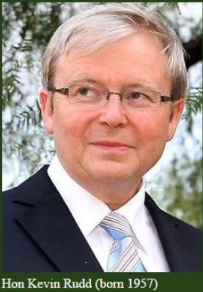 End area. Today it has a fairly high median income level and a high proportion of graduates and of people in professional
and managerial occupations. There are still a few Liberal areas, notably Bulimba, but most of the seat is now reliably Labor.
The 2018 redistribution removed some strong Labor territory around Annerley, slightly reducing the Labor majority.
End area. Today it has a fairly high median income level and a high proportion of graduates and of people in professional
and managerial occupations. There are still a few Liberal areas, notably Bulimba, but most of the seat is now reliably Labor.
The 2018 redistribution removed some strong Labor territory around Annerley, slightly reducing the Labor majority.
Because this seat was so consistently marginal, no member was able to hold it long enough to become a minister until
Ben Humphreys, who was a junior minister in the Keating Government.
Kevin Rudd won the seat at his second try in 1998, became Leader of the Opposition in 2006, and went on to win the
November 2007 election. Rudd's autocratic style as PM rapidly alienated most his colleagues, and he was deposed in June 2010.
Determined to regain the leadership, he staged a coup in June 2013 against his successor
Julia Gillard and returned as PM,
but then lost the September election to
Tony Abbott. He resigned his seat in November 2013.
Terri Butler, Labor MP for Griffith since the 2014 by-election, was an industrial lawyer and union organiser before her election.
She suffered negative swings at both the 2014 by-election and the 2016 election. She was appointed a shadow parliamentary
secretary in 2015. She is now Shadow Minister for the Environment and Water.
The Liberal candidate is again Olivia Roberts, whose occupation is (as in 2019) not stated. The Greens candidate is again Max Chandler-Mather, a party organiser. The Greens polled 23.7% in 2019, and could well
come second at this election. At the 2020 state election they won the seat of South Brisbane, but only with the help of Liberal
preferences, which they will probably not get federally. Although Griffith is now the Greens' strongest Queensland seat,
they are still unlikely to win it.
* A new seat of
Oxley, based on Ipswich, was created in 1949.
Demographics:
Median weekly household income: $1,890 (Australia $1,438)
People over 65: 10.0% (Australia 15.8%)
Australian born: 65.9% (Australia 66.7%)
Non-English-speaking households: 21.0% (Australia 22.2%)
Catholics 24.1% (Australia 22.6%)
No religion 34.4% (Australia 29.6%)
University graduates: 38.1% (Australia 22.0%)
Professional and managerial employment: 48.7% (Australia 35.2%)
Employed in manufacturing and construction: 17.3% (Australia 22.9%)
Paying a mortgage: 29.7% (Australia 34.5%)
Renting: 46.5% (Australia 30.9%)
Traditional families: 26.5% (Australia 32.8%)
Back to main page
|
|
 End area. Today it has a fairly high median income level and a high proportion of graduates and of people in professional
and managerial occupations. There are still a few Liberal areas, notably Bulimba, but most of the seat is now reliably Labor.
The 2018 redistribution removed some strong Labor territory around Annerley, slightly reducing the Labor majority.
End area. Today it has a fairly high median income level and a high proportion of graduates and of people in professional
and managerial occupations. There are still a few Liberal areas, notably Bulimba, but most of the seat is now reliably Labor.
The 2018 redistribution removed some strong Labor territory around Annerley, slightly reducing the Labor majority.

